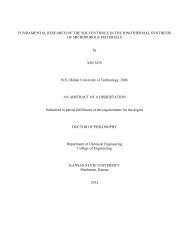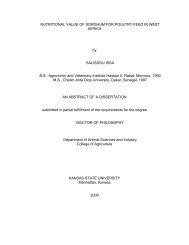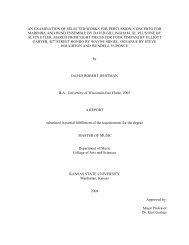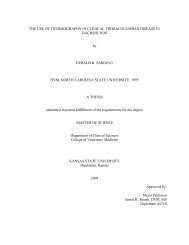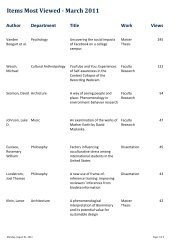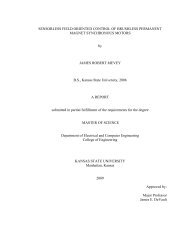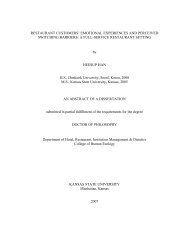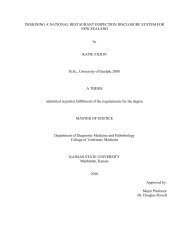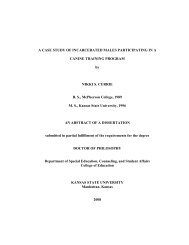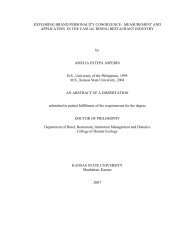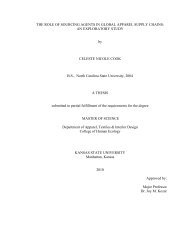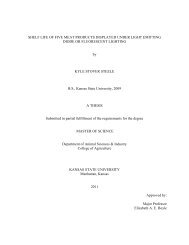SELFISH INTENTIONS - K-REx - Kansas State University
SELFISH INTENTIONS - K-REx - Kansas State University
SELFISH INTENTIONS - K-REx - Kansas State University
You also want an ePaper? Increase the reach of your titles
YUMPU automatically turns print PDFs into web optimized ePapers that Google loves.
Constitution. In his dissenting opinion, Justice Story told legislators that private divorce acts<br />
might be a violation of the contract clause of the Constitution which explicitly barred legislative<br />
interference in contractual obligations. VanBurkleo comments, “While arguing Dartmouth,<br />
counsel for New Hampshire had observed in passing that legislative divorce threatened the rights<br />
inherent in marital contracts. Story seemed to agree: a married couple had property rights in<br />
their union” rights that legislative interference threatened. 35 Story’s main concern was the<br />
“rights” of husbands, but he also noted that marriage was “a civil institution” that occupied a<br />
special status under the law.<br />
Before the issue was decided most legislatures began to move away from the practice<br />
because of its sheer impracticability. Cases presented to state legislatures for divorce often<br />
required a great deal of investigation before the case could be decided. These cases diverted the<br />
legislators’ time and energy away from state issues and forced them to focus on divorce<br />
proceedings. Riley quotes a Louisiana legislator who in 1806 “recommended that the territorial<br />
legislature be relieved of ‘the irksome, disagreeable and laborious task, or tedious investigation’<br />
so that it could pursue ‘objects of greater importance.’” 36 Similarly, by 1827, Virginia legislators<br />
were so bombarded with requests for divorce each legislative session, they began to shift part of<br />
the divorce petitions over to the chancery courts. 37 By 1827, divorce jurisdiction in Virginia<br />
began to shift from legislative to courts of chancery in order to hear cases of marital upheaval<br />
and to relieve some of the congestion of divorce legislation. By 1850, the legislature had turned<br />
all power for granting divorces over to the chancery courts. 38 Three years after this shift in<br />
jurisdiction, the Virginia legislature adopted new legislation that expanded the grounds for<br />
35 Ibid.<br />
36 Riley, 56.<br />
37 Chancery courts are also known as courts of equity.<br />
38 Riley, 51-52.<br />
11



